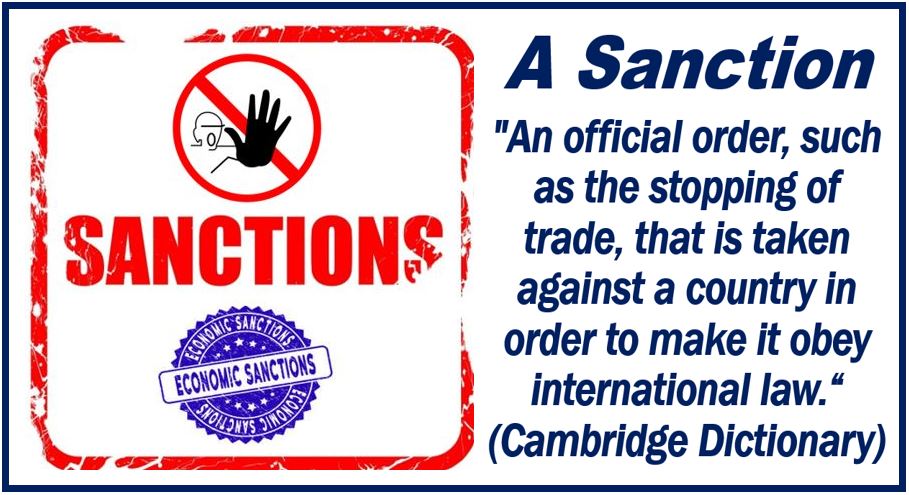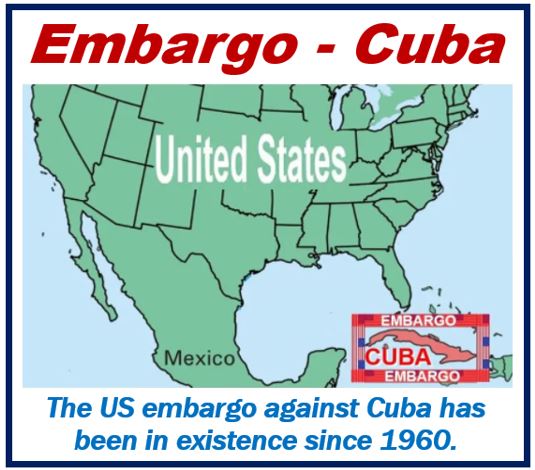Sanctions are official orders that are taken by one country, or a group of them, against another nation. The aim is to make that target country comply with international law.
In most cases, the action involves trade or economic sanctions. The target country’s imports are blocked, no exports are sent there, certain people’s and company’s bank accounts are frozen, and foreign companies start pulling out or closing down.

These sanctions are lifted as soon as the offending nation or aggressor stops its illegal activity.
Economic sanctions – allies act together
Typically, several countries work together and impose economic sanctions against a specific nation. Sometimes, the sanctions also focus on assets. If people, companies, or lawmakers have bank accounts abroad, they may be frozen. Other assets such as luxury homes and yachts may be confiscated.
There may also be an embargo against that country. An embargo is an official ban on doing business with that nation. Additionally, ships are not allowed to enter or leave port.
In some cases, economic sanctions are imposed to try to get a country to withdraw its troops from another nation, i.e., to stop an invasion or a war.
Are economic sanctions effective?
Some people say they are necessary and highly effective, while others insist that all they do is hurt the innocent citizens of that country.

If the aim is regime change, sanctions have been shown to be ineffective. Despite economic sanctions against Cuba for the past sixty years, there has been no regime change. The same group of people are in charge and citizens are still locked up for expressing anti-government opinions. Companies and organizations comply with sanctions, such as those against Cuba, by checking customer and business partner data in a process called sanctions screening.
Other meanings of sanction
Give Permission
To sanction may also mean to give permission for something. When the term is used as a verb – to sanction – it can mean to punish. Read this sentence:
“The health authorities have only sanction 3 types of treatments for this illness.” It means that only three treatments are allowed.
Punish a person
If you sanction a person (in your own country), it means to take action against them to make them obey the law. In other words, you punish them for disobedience.

